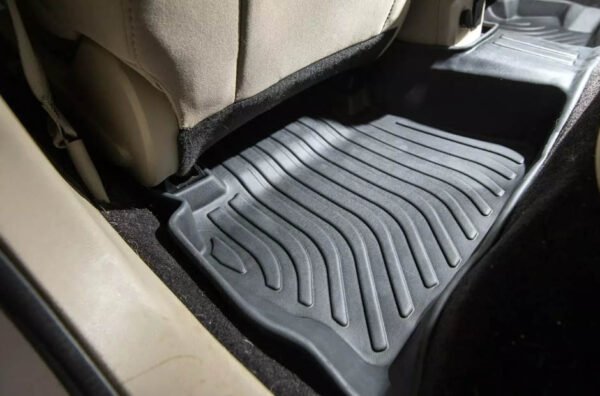Are you dreaming of that shiny new car sitting in the dealership, just waiting for you to take it for a spin? Well, before you can hit the road in style, you’ll need to figure out how to finance your new car purchase. Don’t worry; it’s not as complicated as it may seem. In this guide, we’ll explore various financing options such as those from Toyota finance center that can help you get the keys to your dream car.
Table of Contents
Cash Payment
Pros:
- No interest charges
- Full ownership from day one
- No monthly payments
Cons:
- May require substantial savings
- Could deplete your emergency fund
The most straightforward way to buy a new car is by paying for it in cash. This means you cover the entire cost upfront, and you own the vehicle outright from the moment you drive it off the lot. It’s a hassle-free approach with no monthly payments and no interest charges. However, it does require you to have a significant amount of savings or liquid assets to make the purchase. Be sure to consider the impact on your financial cushion before emptying your bank account for a car.
Car Loans
Pros:
- Spread the cost over time
- Access to a wide range of lenders
- Option to buy a more expensive car
Cons:
- Interest charges add to the overall cost
- Monthly payments required
- Approval depends on creditworthiness
Car loans are one of the most common ways to finance a new car. You borrow a specific amount of money from a lender, and you pay it back over time with interest. This allows you to spread the cost of your car over several years, making it more affordable on a monthly basis. The interest rate you receive will depend on your credit score and the lender’s terms. It’s essential to shop around for the best loan terms and interest rates to save money in the long run.
Personal Loans
Pros:
- Flexibility in choosing the lender
- May have lower interest rates than some car loans
- No need to use the car as collateral
Cons:
- Interest rates may be higher than auto loans
- Approval depends on creditworthiness
- Shorter loan terms compared to some car loans
If you’d rather not tie your car purchase directly to the vehicle itself, you can consider taking out a personal loan. Personal loans are unsecured, meaning you don’t need to use the car as collateral. While interest rates for personal loans can vary, they may sometimes be lower than those for specific auto loans. However, loan terms are typically shorter than auto loans, which means higher monthly payments. As always, your credit score plays a crucial role in the loan approval process.
Hire Purchase (HP)
Pros:
- Ownership at the end of the term
- Fixed monthly payments
- Suitable for those with lower credit scores
Cons:
- Higher overall cost due to interest
- Vehicle can be repossessed if you miss payments
Hire Purchase (HP) is a financing option where you make regular monthly payments over a set term. Unlike a car lease, you’ll own the vehicle at the end of the agreement. It’s a viable option if you have a lower credit score because the car itself serves as collateral. While monthly payments tend to be fixed, the overall cost will be higher due to interest charges. Keep in mind that if you miss payments, the lender can repossess the vehicle.
Personal Contract Purchase (PCP)
Pros:
- Lower monthly payments than traditional loans
- Flexible options at the end of the contract
- Suitable for those who like to change cars frequently
Cons:
- Limited mileage and wear-and-tear restrictions
- Balloon payment at the end of the contract
- No ownership until the final payment
Personal Contract Purchase (PCP) is a financing method that offers lower monthly payments compared to traditional loans. With PCP, you essentially lease the car for a set period, typically 2-4 years. At the end of the contract, you have three options: return the car, buy it for a predetermined amount (the balloon payment), or use the car’s trade-in value towards a new vehicle. PCP is perfect for those who like to switch cars frequently, but keep in mind there are mileage and wear-and-tear restrictions, and you won’t own the car until the final payment is made.
Lease
Pros:
- Lower monthly payments than buying
- Regular access to newer vehicles
- No need to worry about depreciation
Cons:
- No ownership at the end of the lease
- Mileage limits and wear-and-tear charges
- Early termination can be expensive
Leasing a car is similar to renting it for a set period, usually 2-3 years. You make monthly payments, and at the end of the lease, you return the car to the dealership. Leasing typically offers lower monthly payments compared to buying, and you’ll have access to newer models more frequently. Plus, you won’t have to worry about the car’s depreciation over time. However, keep in mind that you won’t own the car at the end of the lease, and there are mileage limits and potential wear-and-tear charges. Terminating the lease early can also be costly.
Manufacturer Financing
Pros:
- Special financing offers from the manufacturer
- Competitive interest rates
- Easy to apply at the dealership
Cons:
- Limited to specific car brands
- May require a good credit score
Many car manufacturers offer their own financing programs through their dealer networks. These financing deals often come with competitive interest rates and special offers like zero-percent APR for qualified buyers. Applying for manufacturer financing is convenient, as you can do it right at the dealership. Keep in mind that these financing options are typically limited to specific car brands and may require a good credit score to qualify.
Family and Friends
Pros:
- Flexible terms
- Potentially lower interest rates
- No credit check
Cons:
- Strain on personal relationships if payments are missed
- Legal and financial implications if not handled properly
If you have friends or family members who are willing and able to lend you money, this can be a viable option. The terms can be more flexible, and interest rates may be lower or even non-existent. However, it’s crucial to approach this option with caution. Make sure to draw up a formal agreement that outlines the loan terms and repayment plan to avoid any misunderstandings or strain on personal relationships.
Conclusion
There you have it—different ways to finance your new car purchase! The right choice for you will depend on your financial situation, credit score, and personal preferences. Whether you decide to pay in cash, take out a loan, lease, or explore other financing options, make sure to do your research and shop around for the best deal. Owning your dream car is within reach, and with the right financing, you’ll be hitting the road in style in no time. Happy driving!





